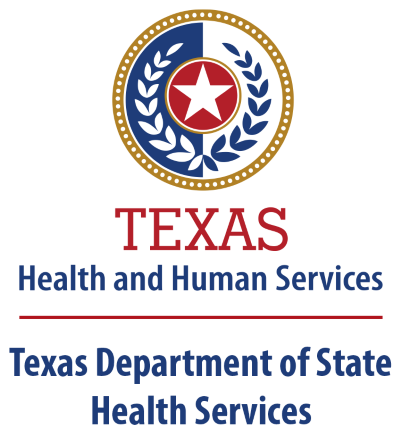Completing rehab is a major step toward recovering from substance abuse. But it’s one thing to stay sober in treatment and another to transition that into your everyday life. While rehab is highly structured, your life in the real world won’t be.
That’s why staying sober in Dallas can be a challenge. But it’s nothing you can’t do. You just need the right strategies and forms of support as you transition your sobriety into the real world.
Reading this blog is a good place to start. Keep going to learn our addiction specialists’ top tips for relapse prevention. They could be just what you need to stay sober long-term.
7 Relapse Prevention Tips to Stay Sober After Rehab
Treatment for drug and alcohol addiction doesn’t end when rehab is over. You’ll still need to embrace the right habits and forms of support to stay sober in the real world. These seven tips are a great place to start.
1. Develop Healthy Coping Mechanisms
Substance abuse is typically a strategy for coping with the unsavory parts of life. For example, people often use because they’re depressed, bored, or struggling emotionally. When you’re feeling those things in everyday life, you need somewhere else to turn besides an addiction.
That’s why developing healthier coping mechanisms for your challenges is important. The idea is that when you experience an urge, you turn to a healthy coping mechanism instead of an illicit substance.
Your healthy coping mechanisms may include:
- Spending time with friends and family
- Exercising and eating well
- Meditation
- Creative activities like painting or playing music
- Hobbies you enjoy
- Practing self care
You probably developed some of these strategies in rehab. But if you’re still unsure about what to do, you can reach out to your care team for personalized advice. The addiction specialists at Maverick are also standing by to help you move forward.
2. Lean on Your Support System
Next, take advantage of the people who want to be there for you. When you’re experiencing problems that you think could lead to relapse, reach out. Don’t hold the issues inside.
Your support system will include family, friends, and recovery groups. You might also want to set up a relationship with an accountability partner who you can stay in touch with regularly. This could a sponsor, a close family member, or a trusted friend.
3. Stay Away From High-Risk Situations
As you go back into your everyday life, keep in mind that some situations can increase your chances of relapsing. For example, spending time with friends who you used to abuse drugs with can lead to the same outcome.
You might also consider avoiding situations where drugs and alcohol are present entirely — especially in the early days of your recovery. Following just this strategy could decrease your chances of relapsing significantly.
4. Keep a Structured Routine
Another important part of maintaining sobriety is sticking to a healthy routine. If you a lot of down time in your life, it can cause boredom, which can lead to cravings. You also want to make sure you keep up your healthy habits over time, which isn’t always easy.
Your care team can help you create a daily routine that keeps you healthy, happy, and sober. If you keep up with that routine consistently, you’ll decrease your chances of relapsing significantly.
5. Know Who You’ll Call in a Crisis
Next, come up with a concrete plan of action for moments of crisis. The most important part of this is having someone you can reach out to when you’re experiencing intense cravings and feeling like you may relapse.
The person you call can be a family member, friend, or sponsor. They’ll help you take the actions you need to take in the moment to avoid relapsing. You may even want to ask a few people to fill this role for you, just in case your first point of contact isn’t available when you need them.
6. Stay Focused on Your Why
Everybody has their own reasons for wanting to beat addiction. You may want to be a healthier person for your family or personal goals. Or, maybe you’re about to have a child and want to be around for them to grow up.
Whatever your “why” is, try to keep in mind throughout your recovery. Keep coming back to it so you never forget why you’re doing the work it takes to heal. This can make it easier to keep up with your healthy routine, go to group meetings, and stay focused on recovery.
7. Consider Aftercare
Finally, aftercare can be a very helpful form of addiction recovery support. It refers to treatment you receive after completing a full rehab program. For example, sober living is a form of aftercare — as is continuing to go to therapy sessions and group meetings.
You should try to have an aftercare plan in place before leaving rehab. But if you don’t, consider reaching out to Maverick Behavioral Health. We specialize in aftercare and can help you find the right program for your needs.
A Guide to Aftercare Programs in Texas
If you’re interested in formal aftercare, you have a few options. One is to move into a sober living home after rehab. This can help you gradually transition your recovery into your everyday lifestyle. You’ll keep some of the structure of rehab in place so you aren’t overwhelmed by sudden freedom.
Another style of aftercare is coming up with a long-term plan for maintaining your sobriety. This may include therapy, group meetings, sticking to a healthy routine, and staying away from high-risk situations, among other strategies.
You and your care team will come up with your ideal aftercare program together. Just let them know what you want and they’ll design a plan that will keep you sober.
Maverick Behavioral Health Can Help You Stay Sober in Dallas
If you need aftercare, don’t wait too long to pursue it, as doing so could increase your chances of relapse. Maverick is here to help you get started. Reach out to one of our addiction specialists today and we’ll help you choose the right aftercare plan for your unique needs.


